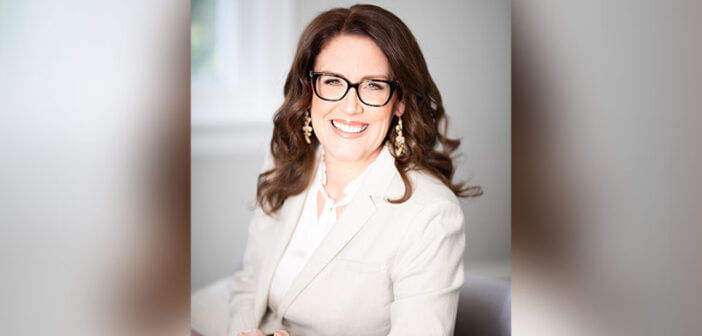By Tammy Gillis
As hotels look ahead to 2022 and decide what sales support they need, it’s important to first understand that not all salespeople are equal, and neither are third-party sales organizations. The hospitality industry is experiencing a 3x greater unemployment rate than the rest of the United States, so if you are considering hiring a property level salesperson, or outsourcing it to another provider, understand that it may not be as easy as you think.
According to STR, U.S. hotel demand and ADR on a nominal basis will near full recovery in 2022. Additionally, RevPAR on a nominal basis is projected to be fully recovered in 2023.
This shows us that at least for a while there will be more supply than demand and hotels will need sales people who have experience hunting for business across multiple market segments.
Difficulty finding and keeping good salespeople
The hospitality industry is one of the world’s largest employers. It also has an extremely high annual turnover rate: 73.8%. Sales and operations are no exception. In a good economy, this meant a labor shortage for those running sales departments in hotels or trying to make their own sales quotas.
Over the decade before 2020, it had become almost impossible to find and keep a good salesperson. For a few dollars more, your star player in sales could be persuaded to join the competition. Finding a replacement could take months, adding a further burden to the already overworked general manager. This was devastating for the sales function. So where have all the good salespeople gone that were furloughed over COVID?
If you are a general manager looking for your next sales manager, do you know what “good” looks like when it comes to hiring sales staff today? Perhaps a candidate has worked 15 years as a director of sales. Does that guarantee they are going to increase revenue and bring new business when the phone isn’t ringing with incoming leads?
Finding a needle in a haystack
Experience has shown us that when screening and hiring salespeople throughout the pandemic, and on average, the process can be overwhelming. For instance, organizations looking to fill an open sales position may receive upwards of 500 resumes a month; however, it is likely that approximately 40 candidates (8%) will get a first interview. From that 40, 10 candidates (25%) move on to a second interview. From that pool of 10 applicants, only two (20%) will be hired.
This means that less than half a percent of applicants make it through to the hiring process. It is clear that before you decide to hire a salesperson you need to understand that the salesperson you hired 10 years ago when times were good, and there was business coming in from sport teams, conventions, corporate, groups and construction, is not the salesperson you will need today.
Before you consider hiring on-property salespeople, ask yourself: Do you have the time and expertise to train and manage your seller to set them up for success?
If you haven’t already done so, it is more important than ever to develop a job description and role profile that outlines what you need the seller to do. Are you looking for someone to manage incoming inquires or to hunt for new business? Each requires a different skillset and mindset.
Pre-pandemic, we were in a time of unprecedented growth in the industry. Most salespeople were able to meet their revenue targets. They grew their accounts by keeping in touch with clients and being personable and available to respond to incoming inquiries. But did they ever experience making call after call without the instant gratification that comes from hearing “yes”? Were they ever in a place where they looked at diminishing results and were forced to ask, “How can I get new business outside the hotel’s traditional revenue channels?”
To be successful, you will need to gain a better understanding of what “good” looks like in today’s market. Whether you are rebuilding your team because of turnover and layoffs, or the industry has returned to a period of growth, the goal is the same.
In short, ask potential candidates if they have ever known what it is like to hunt for business in an environment of scarcity when every hotel was fighting for the same business. Building a sales team and not leaving sales to chance means that those you hire must be effective and skilled at selling regardless of shifts in the market or new competitors, and they need to be able to have a business conversation with an informed buyer.
At the end of the day, it comes down to one key question: Do you have the time and expertise to train, manage and support your seller to set them up for success? Even more importantly, are you prepared to invest in sales tools such as prospecting lists and a CRM? Do you know what success will look like and how you will measure that success?
Taking an alternate route
If you have made the determination that you neither have the time nor the available tools to help a salesperson be successful, perhaps it is time to consider another route. Third-party sales organizations are helping hoteliers solve the labor shortages in key roles. Many provide full-service turnkey remote sales solutions.
However, not all third-party companies are the same. So, if you’ve made the decision to explore this route, ensure you are comparing apples to apples and remember that owners who choose a solution based on price often end up repeating that old saying “you get what you pay for.”
When looking at a third-party provider, ask each company the following questions and do a side-by-side comparison before you go with any solution:
- On average, what is the return on investment your clients have received this year during the pandemic?
- What is your client retention rate?
- Do your clients have an area of protection, or will you sell for the competitors in my market as well
- How many hotels do your sellers manage?
- How many years’ experience does your company have?
- On average, how many years’ experience do your sellers have?
- How are your sales personnel compensated?
- What sales tools are included in my monthly fees? What’s not included?
- Do they focus more on hunting for new business or farming incoming leads?
If you are struggling because of the most recent crisis, now is the time to recalibrate. The same principles behind sales as a strategic—not tactical—activity apply even when the economy improves. A sales imperative is not just nice to have, it is a necessity, a requirement critical to your success.
The hospitality industry is fiercely competitive, it’s hard work and it’s not for the faint of heart. But the gains and the satisfaction are hugely rewarding for those willing to put in the effort.
Tammy Gillis is CEO of Gillis, a hospitality consulting, training and off-site sales company.
This is a contributed piece to Hotel Business, authored by an industry professional. The thoughts expressed are the perspective of the bylined individual.



